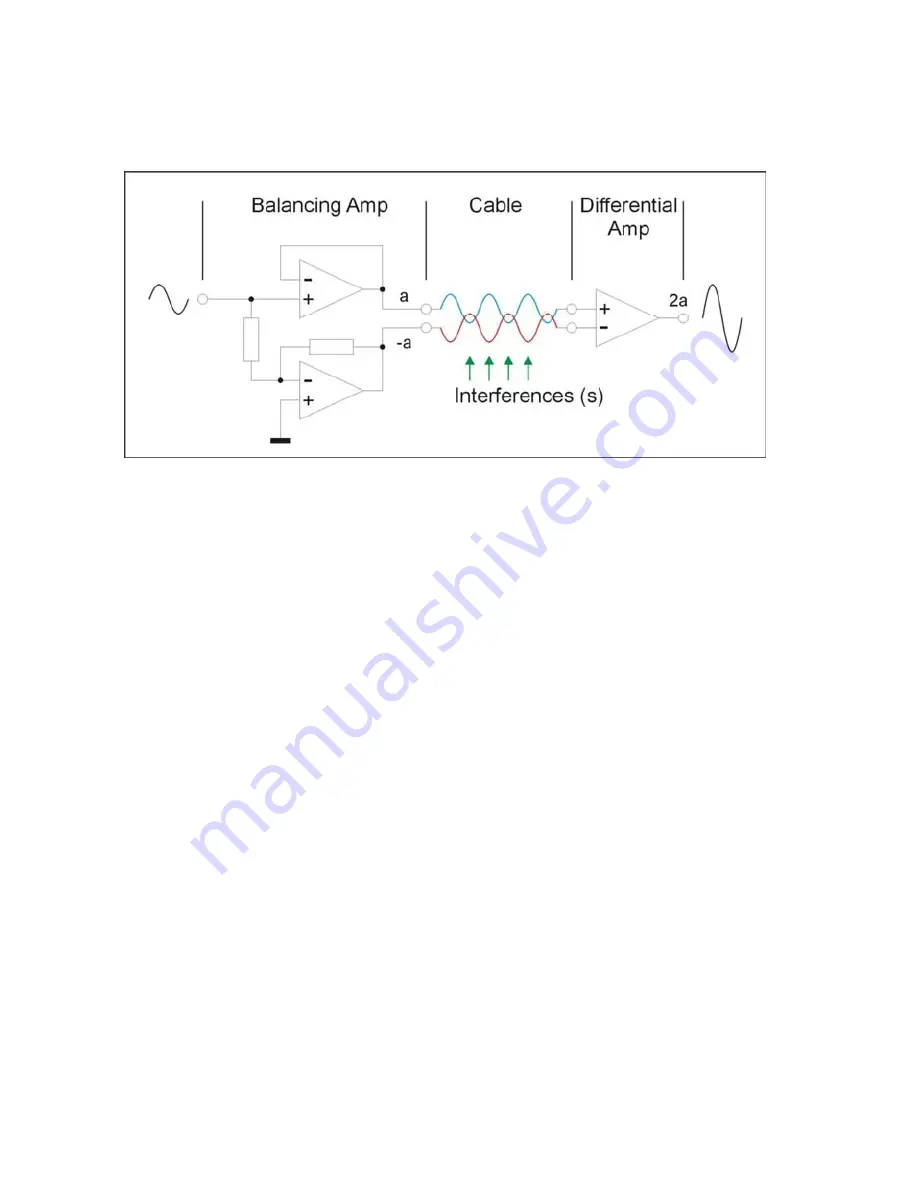
18
Electronically balanced signals can be made with two op-amps. Here, out of a
present unbalanced signal (a) an inverted or 180
0
phase shifted signal (-a) is
formed with another op-amp.
Both signals are fed to a cable consisting of a twisted pair which must not
necessarily be shielded.
On the way to the receiving device interferences may show up and disturb the
signal.
Inside the receiving device the signals are input to a differential amp. As the
name explains, this amp forms a difference out of both signals like this: a
– (-a)
= 2a. The same procedure is applied to the interferences: s-s = 0.
As an ideal result there is double the original signal amplitude and no
interferences on the output of the differential amp. In the real world this is not
achieved by 100%.You have to consider voltage- and impedance-ratios what
can be determined as CMRR or Common Mode Rejection Ratio. The higher the
technical efforts, the better the results.
Besides the fact that balanced signals offer enhanced interference immunity
compared to unbalanced signals, the next advantage is that the screen from the
cable only serves for the protection of the signal and for the potential
equalization between devices. It only has a static function.
Looking at unbalanced cables, here the cable shield also serves to leading back
signals.
The ground of unbalanced connected devices is not static but is modulated by
the reflux of the signals.
Whereas a balanced line serves mainly to have an interference-free signal distri-
bution and a static ground, there are other things in the forefront concerning
…
















































